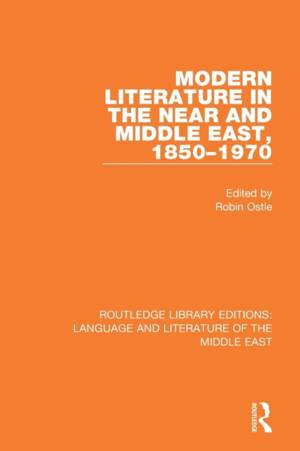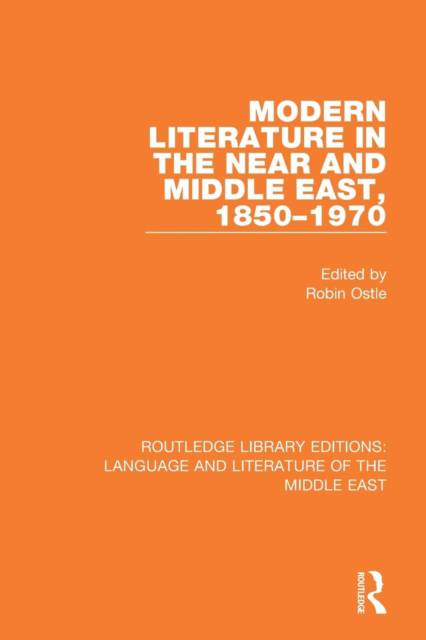
- Retrait gratuit dans votre magasin Club
- 7.000.000 titres dans notre catalogue
- Payer en toute sécurité
- Toujours un magasin près de chez vous
- Retrait gratuit dans votre magasin Club
- 7.000.000 titres dans notre catalogue
- Payer en toute sécurité
- Toujours un magasin près de chez vous
Modern Literature in the Near and Middle East, 1850-1970
Description
Enormous political and social changes brought about by modernization have naturally found expression in the literatures of the Near and Middle East. The contributors to this book, first published in 1991, trace the development of modern literary sensibility, in Turkish, Arabic, Persian and modern Hebrew. It is argued that the period can be divided into three broad phases - the age of translation after 1850, when formerly self-sufficient elites throughout the region began to reach out to the West for new ideas and stylistic models; the surge of romantic nationalism after the First World War and the decline of imperialism; and the modern period after 1950, a time of growing self-awareness and self-definition among writers against an often violent background of inter- and intra-state conflict. The product of different nations, races and traditions, there are nevertheless constant themes in the literatures of this period - the colonial heritage, nationalism, justice, poverty and wealth, migration from country to city, confrontation between self and other, and between East and West, collapse and rebirth.
Spécifications
Parties prenantes
- Editeur:
Contenu
- Nombre de pages :
- 258
- Langue:
- Anglais
- Collection :
Caractéristiques
- EAN:
- 9781138699090
- Date de parution :
- 27-02-18
- Format:
- Livre broché
- Format numérique:
- Trade paperback (VS)
- Dimensions :
- 156 mm x 234 mm
- Poids :
- 367 g






